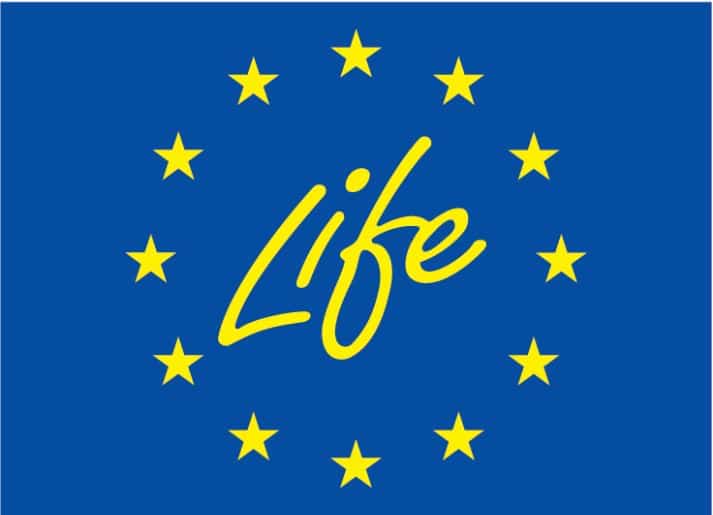Emissions trading 2.0: The Social Climate Fund and Europe’s just transition
This is the forth installment of the Topic of the Month: Is emissions trading fit for Europe’s net zero objective?
A new Social Climate Fund for Europe
In November 2018, thousands of protesters across France took to the streets to challenge the French government over planned carbon taxes on petrol and diesel. The protests, known as the Yellow Vest movement, forced the government to suspend the price increase originally planned for the following year. Have policymakers at the EU level been following the incident in order to avoid similar opposition to the upcoming revision of the EU Emissions Trading System (EU ETS)?
Over four years later, on 16 May 2023, the final act of the revised EU ETS was published, including a decision to set up a new emissions trading scheme starting from 2027. This ETS will be dedicated to the buildings and transport sectors, as well as for process heat in small-scale industry. The so-called EU ETS 2 aims to reduce greenhouse gas emissions by 43 per cent by 2030 compared to 2005 levels. At the same time, the increase in the price for fossil fuels “may disproportionally affect vulnerable households, vulnerable micro-enterprises and vulnerable transport users” (European Commission, COM (2021) 568 final). In order to cushion the negative distributional effects, the EU has set up a Social Climate Fund to support those who will be most affected by the expected increase in fuel prices.
The Social Climate Fund was backed by a large majority in the European Parliament and has been welcomed by many organisations, among them the European Anti-Poverty Network, WWF, Solidar as well as Transport & Environment. Indeed, the Fund will be the first EU instrument to specifically address the needs of vulnerable households, transport users and micro-enterprises in the energy transition. The Fund is expected to raise 65 billion EUR from the auctions of the EU ETS 2 which are to take place during the period 2026-2032. Approximately 5 billion EUR will be added from the auctioning of 50 million allowances under the EU ETS 1 and Member States will contribute 25% of their own resources, making a total of around 86 billion EUR available for social compensation. These revenues are to be used for investments in more efficient buildings and lower-emission mobility and to finance direct temporary income support to vulnerable households, transport users and micro-enterprises.
Taking stock: Social justice in the EU
The Social Climate Fund is an important step in the right direction, and it comes at a time when issues of social justice need to be urgently addressed by the EU and its Member States. Both the consequences of the coronavirus pandemic, as well as the impacts of Russia’s invasion in Ukraine have left many Europeans distressed about the economic situation and the increased cost-of-living. The EU ETS 2 alone will place an additional burden on consumers. First, the scheme will offer no free allowances to fuel traders, so that prices will be passed on to consumers to create an incentive for climate action. Second, investment decisions under the scheme, such as energy renovations or the purchase of electric cars, will be borne by households instead of companies. And lastly, low-carbon alternatives will not be equally accessible to everyone due to gaps in public transportation infrastructure, regional dependencies on fossil fuels or the lack of financial resources for long-term investments.
The new EU ETS 2 will mostly impact poor households who spend a significant proportion of their income on energy and transport bills. As data shows, this includes a large share of the European population. As stated in the Social Climate Fund Regulation, in 2021, nearly 7% of the EU population was unable to keep their homes adequately warm. In addition, many inhabitants of rural areas still face difficulties in accessing public transport. Nevertheless, the original proposal for the Social Climate Fund was considerably watered down, from the initial 144.4 billion EUR to 86 billion EUR and from additional national funding of 50 per cent to only 25 per cent. Given this limitation, the Social Climate Fund will likely need to be accompanied by social policy measures in the Member States.
A call to action for Member States
The establishment of the Social Climate Fund can be considered as a breakthrough for European emissions trading. At the same time, the Fund alone is unlikely to solve all social challenges arising from the ecologic transformation of our society and the economy.
Much will depend on the Member States’ additional efforts to make sure that the negative impacts that are caused by climate policies in the short-term do not overburden low- and middle-income households. The Social Climate Fund requires Member States to submit national Social Climate Plans, in which climate action and social compensation measures are set out. However, the success of these measures will depend on the implementation at the national level.
Another crucial aspect will be the way that Member States explain and present the new measures to citizens. At the International Conference on Ex-Post Evaluation of Emissions Trading held last week as part of the LIFE COASE project, keynote speaker Dr Jan Steckel (MCC Berlin) pointed out that public acceptance of carbon pricing measures depends not only on their design, but also on whether citizens are aware of the social compensation measures available. Clear communication and transparency on the use of revenues from the EU ETS 2, as envisaged under the Social Climate Fund, will be crucial to maintain public support for emissions trading in the transport and buildings sectors. Member States should invest in raising public awareness of the structural investments in low-carbon solutions and the direct income support measures that the Social Climate Fund makes possible.
Climate and Social Policy: A zero-sum game?
While climate policies, and in particular carbon pricing measures, will positively affect the living conditions of Europeans in the long-term, they might cause considerable frictions in the short-term. Openly admitting this challenge and bringing these aspects to the forefront of the discussion by engaging the public in the discussion may be the solution for sustaining public acceptance of climate action. What has been described as the “trilemma of the green transition, social justice, and democracy” in a recent Carnegie Europe article needs to be addressed openly. As the article states “Only by embedding social justice and meaningful democratic engagement can the EU accelerate – and sustain – the climate transition and overcome the bloc’s new trilemma.”
If European policymakers are willing to learn the lessons from the Yellow Vests protests in France, social unrest need not be a side effect of carbon pricing. In fact, in France, most protesters were in favour of the energy transition but demanded that higher carbon prices would go hand in hand with social compensation measures. It is also important to note that the carbon tax in France was not the only reason for public discontent. As described in a paper of Agora Energiewende, the announced price increase only added to many legislative reforms that disproportionately burdened low-income households. We can therefore assume that the EU has learned the lesson and has made an important step in the right direction by adopting the Social Climate Fund. Now it depends primarily on the Member States to address the underlying structural inequalities and take complementary action to ensure a just energy transition.








